
Like Powerade, Gatorade is an incredibly popular sports drink. It’s promoted as a way to give you energy and keep you hydrated when you’re exercising intensely. Yet, many people who drink Gatorade aren’t athletes at all. If that’s the case, is Gatorade good for you?
There’s no doubt that Gatorade does what it claims to. It keeps you hydrated, provides you with electrolytes, and helps you to refuel. Yet, Gatorade has its dark side too, including the coloring agents used and the artificial sweeteners.
The question, then, is whether the benefits of Gatorade outweigh the problems. To answer that, we need to look at the different products that Gatorade offers and how they compare.
Is Gatorade Good For You?
- Gatorade’s Product Selection
- The Benefits Of Gatorade
- The Risks Of Gatorade
- Should You Drink Gatorade?
- Which Gatorade Product Is Best?
- Gatorade Versus Powerade
- Final Thoughts
Gatorade’s Product Selection

At one stage, Gatorade was just known for their hydrating drinks. The company has since expanded their product range considerably to include some completely different products.
Gatorade Hydration
The hydration range from Gatorade should be the most familiar. These are the products designed to help you stay hydrated, particularly if you’re active.
The most well-known is Gatorade Thirst Quencher, which is their original product. This comes in bottle, pod, or powder formats. There are plenty of flavors available, including Fruit Punch, Lime Cucumber, Fierce Grape, and Cool Blue, along with different bottle sizes.
The ingredients label is surprisingly simple, but sugar is the second listed ingredient. That’s never encouraging. In fact, a 12 fl. oz serving of the Fruit Punch version contains 21 grams of sugar.
Sodium and potassium are included too. These are both electrolytes, which may help you stay hydrated. We’ll talk more about these later on.
There’s an Organic Thirst Quencher too. This is similar, except that it uses organic ingredients and fewer additives. The sugar content is even higher than the original version.
Next, we turn to the G Zero version, which is a sugar free product. It’s similar to regular Gatorade, except instead of sugar, the drink contains sucralose and acesulfame potassium.
G2 is similar to the regular version of Gatorade, except that it drops the sugar down dramatically. This time a 12 fl. oz serving contains 7 grams of sugar. The lower sugar content makes this sound like a healthier product, but unfortunately artificial sweeteners are used to make up for the lost sweetness.
Gatorade Juiced uses fruit juice as the main sweetener. The sugar content ends up being fairly low (8 grams in a 12 fl. oz serving) and stevia is used for extra sweetness. This version also avoids the artificial colors and flavors present in some of the other products, making it a healthier choice than most other Gatorade drinks.
Finally, Gatorade Endurance is more athletically focused, with higher amounts of sodium and potassium, and less sugar. There aren’t any artificial sweeteners either, making this less sweet than the other products.
Gatorade Protein
Not surprisingly, these Gatorade products all increase your protein intake. There are three drinks here, plus whey protein powder and a whey protein bar.
The first drink is Gatorade Zero with Protein. This is basically the Gatorade Zero from before, except that, oddly, it contains 10 grams of protein from whey isolate too.
Next is the Gatorade Super Shake. This is your classic protein shake, with 30 grams of protein and a small selection of nutrients. There are 10 grams of sugar per serving too and some artificial sweeteners.
Finally, there’s the Gatorade Recover Shake, which is a step down from the Super Shake. This version isn’t as appealing, as it contains 20 grams of sugar and 20 grams of protein. Artificial sweeteners are used too, despite the high sugar content.
Gatorade Energy
Gatorade’s energy products are designed to provide a fast boost of energy, mostly in the form of sugar. These could be useful for athletes who are exercising intensely, but they’re not relevant to the rest of us.
Be cautious with these products too. It’s easy to think that you’re burning more energy than you are, which could lead to overdoing it with energy boosting products.
The Benefits Of Gatorade

Hydration
Gatorade is promoted as a thirst quencher. So, it shouldn’t be surprising that it helps to hydrate you.
While this effect mostly comes from the water, Gatorade also contains sugar, sodium, and potassium. Sodium and potassium are electrolytes. They help with the fluid balance in your body and drinks with electrolytes may be a little more hydrating than those without.
Interestingly, the sugar in Gatorade may help with hydration too. However, this is more debatable. Glucose indeed helps to transport sodium and water across your intestines, which could then improve hydration.
However, sugar and electrolytes don’t have a huge effect on hydration. Most people will get more than enough hydration from water alone without the extra ingredients.
Electrolytes
The sodium and potassium that we mentioned earlier mightn’t be powerful for hydration, but they are still important. They’re both electrolytes that tend to get lost with sweat.
If you sweat heavily and only rehydrate with water, you could end up with an electrolyte imbalance, which isn’t a good plan and could even make you sick. Drinking something like Gatorade helps you get around the issue, as your electrolyte stores get replenished.
The Flavor
Gatorade is basically water with extra flavoring, sweetness, and additives. These additions make Gatorade taste more interesting than regular water. This could be an important effect for some people, as water can seem boring at times and may even be difficult to drink.
There are even some situations where it’s better to give someone a drink like Gatorade than have them drink nothing at all.
The Risks Of Gatorade

Artificial Sweeteners
The sugar free versions of Gatorade use sucralose and acesulfame potassium (also called acesulfame K) for sweetness. These are both artificial sweeteners, which means they’ve been created in a lab, rather than extracted from nature.
Artificial sweeteners are officially considered safe. That’s why they’re in our food supply to begin with.
Yet, there’s a lot of controversy about whether they are harmful. The sweeteners could alter your gut health, dental health, diabetes risk, and even cancer risk, especially if you’re using the sweeteners regularly for a long time.
Research has shown mixed results – so there’s plenty that we don’t know.
Still, artificial sweeteners don’t offer health benefits. They’re just used to provide sweetness, so why risk it? It’s much safer to avoid artificial sweeteners entirely. If you need a zero-calorie sweetener, natural ones appear to be safer. In other cases, you might be able to skip the sweetener entirely.
Sugar
Most Gatorade products either contain artificial sweeteners or they’re high in sugar. Neither option is good for you.
For example, the original Gatorade Thirst Quencher contains 21 grams of sugar in a 12 fl. oz serving (and you could easily drink more than that at a time). This is still less sugar than Coke, which contains 39 grams for the same serving size.
Even so, 21 grams of sugar is far too much for a so-called healthy drink.
Might Lead To Weight Gain
The sugar in Gatorade could easily lead to weight gain, especially if you see the drink as a healthy option. Gatorade’s serving sizes don’t help you here either, as the drink comes in a variety of sizes, including a 28 fl. oz bottle. If you consumed that whole bottle, you’d consume 48 grams of sugar. Yikes!
The sugar mightn’t be so bad if you exercise intensely and need to refuel. Even so, most of us don’t need that much refueling.
Plus, it’s very easy to overestimate your calorie burning. If you do this, you might overcompensate with calories, which is a sure-fire pathway to weight gain.
The sugar free products are a better choice for avoiding weight gain. Be careful though, as these rely on artificial sweeteners.
Should You Drink Gatorade?

So far, Gatorade doesn’t seem like the best drink. It has some benefits and many more risks. However, the balance of benefits to risks partly depends on how you’re using the drink to begin with.
Gatorade for Athletes
Gatorade is designed to help athletes refuel. This is one reason that most of the products contain sugar. If you’ve been exercising heavily, you may need to refuel with glucose, especially if you’re not even close to the end of your session. A drink like Gatorade could keep you on the top of your game for longer.
The sodium and potassium are important too. While many of us get too much sodium, athletes may need to replenish their sodium to avoid an electrolyte imbalance.
For those who exercise intensely, the sugar and electrolytes could make Gatorade useful, Still, don’t forget about the risks that we mentioned earlier. Useful or not, Gatorade is still highly processed and uses additives that might not be good for you.
Gatorade For Everyone Else
If you’re not an athlete, then Gatorade doesn’t offer as many benefits. We’re not counting going for a run periodically or doing yoga as being an athlete here either. Gatorade works best for people who do a lot of sweating. That simply isn’t true for most of us.
For non-athletes, Gatorade is largely flavored water. The sodium and potassium won’t help you at all if you’re not losing much through sweat.
The protein shakes from Gatorade might still be appealing, but honestly, you’d be better to make your own.
Gatorade Alternatives
Whether you’re an athlete or not, there are plenty of other products that offer similar benefits to Gatorade, with fewer risks.
To begin with, think about your needs. If you just want to hydrate, water will do the trick. For more flavor, try infusing the water with fruit or adding some lemon juice. You could even add some fresh fruit juice.
If you’re after electrolytes too, coconut water is a good choice. True, the electrolyte concentration of coconut water is lower than Gatorade, but many people don’t need the amount of electrolytes found in Gatorade.
You could also look for a more natural sports drink (they do exist) or make your own.
Which Gatorade Product Is Best?

Gatorade’s products will never be healthier than water, but some have a better balance of benefits to risks than others. Gatorade Juiced is one of the best options, as it keeps the sugar content low, avoids artificial flavors and colors, and uses natural sweeteners instead of artificial ones.
If you want protein, then try the Gatorade Super Shake. This has more protein and less sugar than their other pre-prepared shake. The protein powder isn’t too bad either, as you’re getting 20 grams of protein and just 2 grams of sugar per serving.
Gatorade Versus Powerade
Gatorade and Powerade are similar brands. They’re both marketed at athletes and have an array of different products. Despite their similarities, there are differences between the products too.
- Sugar. Gatorade uses dextrose as their main sweetener, while Powerade uses high-fructose corn syrup instead. Powerade and Gatorade contain roughly the same amount of sugar (21 grams) per serving for their regular products, although both have low sugar and sugar free versions.
- Artificial Sweeteners. Both brands use artificial sweeteners in their sugar free products and sometimes in their low sugar products as well.
- Colors, Flavors, and Additives. The other concerning ingredients are similar across brands as well, including controversial food dyes like Red 3 and Blue 1. However, each brand does have some more natural products, like Gatorade Juiced and Powerade Water.
- Electrolytes. Gatorade just contains two electrolytes – sodium and potassium. Some Powerade products use their ION4 system, which provides magnesium, sodium, potassium, and calcium.
- Vitamins. Gatorade keeps things simple and doesn’t add other vitamins and minerals (except in their protein products). Powerade products sometimes have B vitamins.
- Flavor. Powerade is often said to taste sweeter than Gatorade, perhaps because of the differences between the type of sugar used. However, opinions about flavor are also highly individual, with some people preferring Powerade and others preferring Gatorade. Both brands have plenty of flavors for you to try.
- Product Range. While Powerade and Gatorade are both famous for their hydrating sports drinks, the brands have been branching out. Gatorade has a broader range, which includes protein products, energy chews, pods, and powders, while Powerade mostly focuses on hydration and some freezer bars.
The differences between the Gatorade and Powerade aren’t dramatic, so the impacts on health are roughly the same. You can choose whichever product you prefer.
Final Thoughts
Like Powerade, Gatorade is a processed drink that heavily relies on artificial colors and additives. Some products are high in sugar, while others use artificial sweeteners instead. Neither approach is great for your health.
Gatorade’s products are convenient, they help with your electrolyte balance, and will keep you hydrated, but those aren’t enough benefits to justify using them. Plenty of other products have similar benefits and don’t contain such a long list of concerning ingredients.
Besides, most of us don’t need more electrolytes. Unless you’re an athlete or exercise extensively, you’re probably fine with the electrolytes that you’re already getting.
Frequently Asked Questions
Is Gatorade An Energy Drink?
Energy drinks almost always contain caffeine, along with stimulants like taurine and guarana. This isn’t the case for Gatorade at all. Most of their products skip all those ingredients. Some even keep the sugar content low too.
That said, Gatorade is planning to release an energy drink called Fast Twitch. This will still contain electrolytes, but will offer caffeine as well. Interestingly, the product will also be non-carbonated, which is unusual in the energy drink market.
Is Gatorade Vegan?
The short answer here is yes. Gatorade doesn’t contain any animal ingredients, which makes it vegan friendly.
The longer answer is that it depends. Like many products, Gatorade does contain artificial colors and natural flavors. Some vegans avoid artificial colors entirely and natural flavors are tricky, as they can come from animals (and companies don’t need to disclose the source).
Is Gatorade Good For Dehydration?
Drinks like Gatorade and Powerade are often promoted as solutions to dehydration. They even have some useful features, as the electrolytes can replace any that were lost during stress.
There are some major limits though.
First, Gatorade isn’t actually any better at hydration than water itself. The high sugar products may even be slightly less hydrating.
Second, you probably don’t need electrolytes. If you do, a targeted rehydration solution could be much more effective than Gatorade.
Is There A Gatorade Shortage?
Interestingly, yes. In 2021, Gatorade started to face some serious shortages. These were driven by a combination of increased demand and decreased supply, in an environment where Gatorade couldn’t easily increase their production.
The shortage isn’t talked about as often in 2022 as it was in 2021, but the issue remains significant. Some stores are even selling out of some Gatorade products, although thankfully this isn’t common.
Does Gatorade Help With Nausea?
Clear liquids can help with nausea and Gatorade does fall into this category. The flavor is helpful too, especially if you find it difficult to drink plain water when you’re feeling unwell.
The electrolytes are relevant too, especially if you’ve been throwing up. In fact, being deficient in electrolytes can even make you feel nauseous. It may simply be worth trying Gatorade and seeing whether it helps you or not.




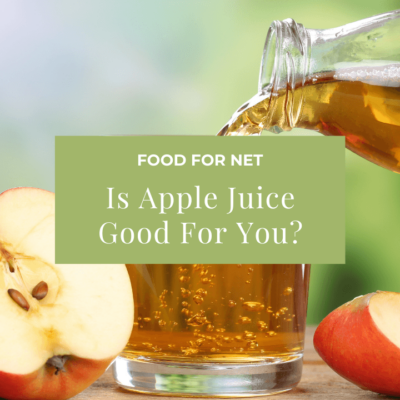

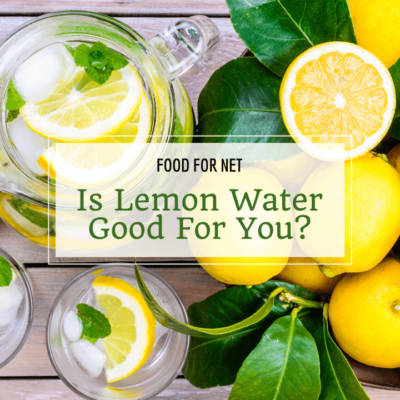
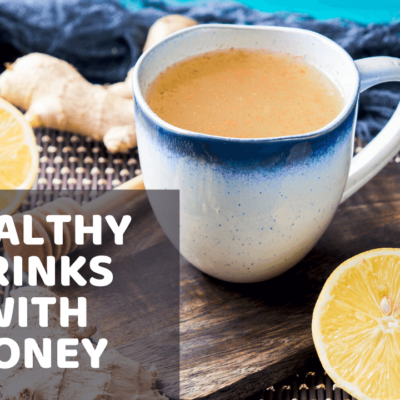

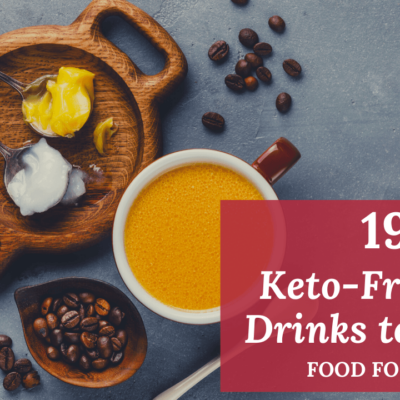




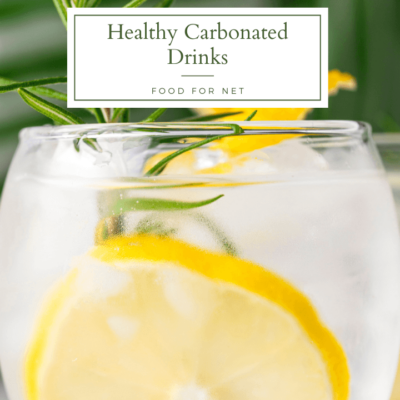
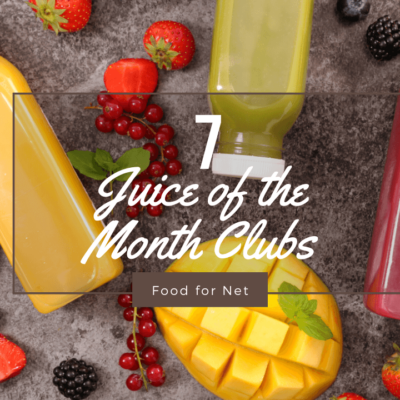

 The Best Vodka For Every Budget
The Best Vodka For Every Budget
Leave a Reply